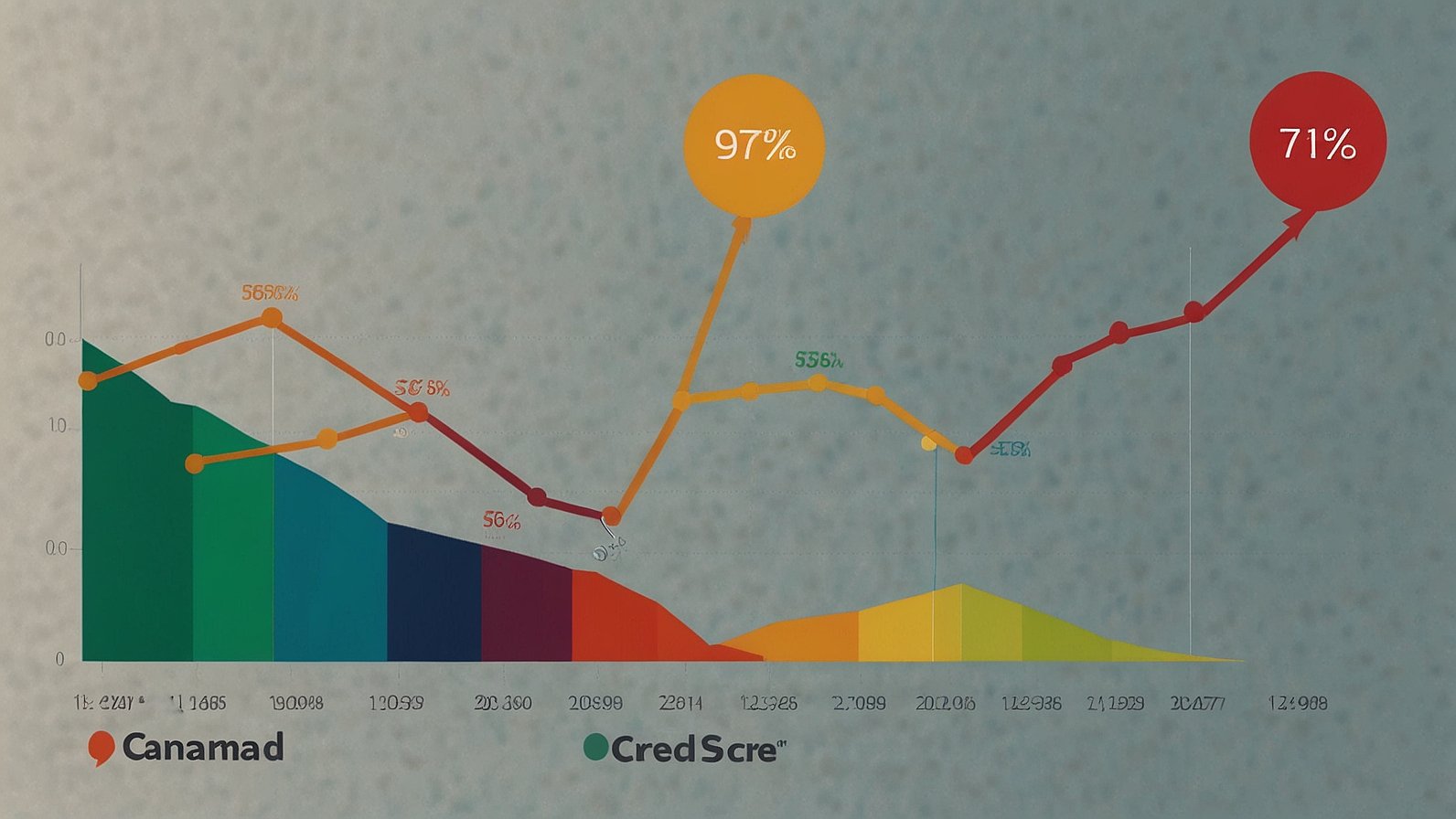One of the most important decisions when securing financing for your commercial property is choosing the right commercial mortgage broker. These professionals serve as intermediaries between business owners and lenders, navigating the complex world of commercial real estate finance. A commercial mortgage broker can help you secure better rates, negotiate terms, and ultimately ensure that your financial strategy aligns with your business goals. However, finding the best broker isn’t always straightforward.
Whether you’re looking to purchase an office building, expand your retail space, or refinance existing properties, working with the right commercial mortgage broker can make a world of difference. This guide will explore critical factors to consider when choosing a commercial mortgage broker. We’ll provide insightful tips beyond just finding someone with experience. This guide will ensure you select a professional who understands your specific needs and can deliver real results.
1. Start with Your Business Goals in Mind
Before you even begin researching brokers, taking a step back and defining your business goals is essential. Are you looking for a long-term loan with fixed rates? Do you need to move quickly to secure financing for a time-sensitive property? Are you interested in an unconventional loan type like an SBA loan, or do you need access to a range of lenders with varied options? The more you understand about your goals, the better you’ll be at choosing a broker who aligns with your objectives. Knowing your goals in advance allows you to find someone with the expertise to help you achieve them.
2. Understand the Role of a Commercial Mortgage Broker
Before diving into the specifics of choosing the right broker, it’s important to understand what a commercial mortgage broker does. Unlike a traditional bank loan officer who works for a specific lending institution, a commercial mortgage broker is an independent professional who acts as an intermediary between you and various lenders. They leverage their relationships with banks, credit unions, private lenders, and other financial institutions to secure your most favorable loan terms.
A good commercial mortgage broker will:
- Assess your unique financial situation: Brokers take time to understand your business goals, financial standing, and property type to recommend the best financing options.
- Help with loan applications: They will assist in gathering required documents, ensuring your application is complete and competitive.
- Negotiate terms: Brokers use their network and expertise to negotiate interest rates, terms, and conditions that best align with your objectives.
- Provide advice on the market: A knowledgeable broker will provide insights on current market trends, ensuring you don’t overpay or enter into unfavorable terms.
Now that you understand a broker’s role more clearly, let’s move on to the essential tips for finding the best one.
3. Look for Experience and Expertise
One of the most important factors when choosing a commercial mortgage broker is experience. The commercial lending landscape is far more intricate than residential mortgages, and a seasoned broker will have the knowledge to navigate complex loan structures, government regulations, and diverse property types.
Here’s how you can evaluate experience:
- Industry Specialization: Choose a broker who specializes in commercial real estate. They’ll have a deeper understanding of property-specific loans, from office spaces and retail centers to industrial warehouses and multifamily properties.
- Years in the Field: Longevity in the business often indicates reliability and a strong network of contacts. A broker with several years of experience will be familiar with different lenders’ requirements and preferences.
- Diverse Portfolio: Ask for examples of the broker’s previous deals. A broker who has worked with various property types and business sizes will have the flexibility and knowledge to handle your unique financing needs.
4. Evaluate Their Network of Lenders
A commercial mortgage broker’s success largely depends on the strength and diversity of their lender network. The best brokers will have access to a wide range of lenders, from traditional banks to private money lenders, and can match your needs with the right financing source.
Key considerations:
- Variety of Lenders: A strong network means more options for you. Look for brokers who have relationships with multiple lenders—such as national banks, local credit unions, and specialized commercial lenders.
- Exclusive Access: Some brokers have exclusive deals or special arrangements with lenders, which can help you secure better terms or rates.
- Ability to Negotiate: A good broker will not only have a wide lender network but will also have the negotiation skills to get you better terms, reducing your overall financing costs.
5. Check Reviews and References
Before committing to a broker, do your homework. Check their reputation and credibility through online reviews, testimonials, and direct references from previous clients. Here are some effective ways to gather feedback:
- Online Reviews: Websites like Google Reviews, Yelp, and Trustpilot often have user-generated feedback on brokers. While not every review will be relevant, patterns of praise or criticism can give you a sense of the broker’s reliability and service quality.
- Ask for References: A reputable broker should be willing to provide references from past clients with similar financing needs. Speak with those clients to gauge how well the broker performed, how responsive they were, and whether they met expectations.
- Industry Recognition: Brokers with a solid reputation in the industry are often recognized by professional organizations such as the National Association of Mortgage Brokers (NAMB). Look for certifications and accreditations demonstrating professionalism and a commitment to ethical standards.
6. Assess Communication and Transparency
Effective communication is paramount when working with a commercial mortgage broker. A broker who doesn’t keep you informed or fails to explain terms in layman’s language can create confusion and delays. Look for brokers who are transparent and communicative throughout the entire process.
Here’s what to look for:
- Clarity in Communication: The broker should be able to explain complex financial terms, loan options, and interest rates in a way that makes sense to you. They should proactively communicate every step of the process, including timelines and required documents.
- Availability and Responsiveness: A top-tier broker should be easily reachable and respond to your emails, calls, and inquiries in a timely manner. Delays in communication can cause missed opportunities and delays in closing.
- Transparency in Fees: Make sure the broker is upfront about their fees, including commission structures and any additional charges. Hidden fees can eat into your budget, so knowing exactly what you’re paying for is essential.
7. Assess Their Negotiation Skills
The ability to negotiate favorable terms on your behalf is one of the most important qualities of a good broker. Your goal is to secure the best possible deal, and a broker skilled in negotiation can help lower your interest rate, reduce closing costs, and secure more favorable loan terms.
Here’s how to evaluate a broker’s negotiation abilities:
- Ask About Previous Negotiations: Ask the broker about specific instances where they could secure better terms for their clients. A broker who can confidently discuss their negotiation successes is likely a good choice.
- Competitive Rates: A skilled broker should be able to show you that they can offer lower rates than you could get from a bank directly or a less experienced broker.
- Creative Financing Solutions: Look for brokers who can offer creative solutions when standard financing options don’t work. They should be able to think outside the box and find financing products that fit your needs.
8. Consider Their Fees and Structure
While cost shouldn’t be the only deciding factor, understanding how a broker charges for their services is critical to your decision-making process. Commercial mortgage brokers generally work on a commission basis, but there can be variations in how they charge.
Here’s what to keep in mind:
- Commission-Based Fees: Most brokers charge a commission, which typically ranges from 1% to 3% of the loan amount. Ensure you understand how the commission is structured and whether there are any additional fees.
- Flat Fees: Some brokers may charge flat fees for specific services, such as helping you complete an application or assessing your financial situation. These fees are usually negotiated upfront.
- No Hidden Charges: Always ensure there are no surprise fees. A reputable broker will be upfront about all costs involved, leaving no room for misunderstandings later in the process.
9. Ensure They Provide Ongoing Support and Guidance
Once the loan is secured, the relationship with your commercial mortgage broker shouldn’t end. The best brokers provide ongoing support and advice, ensuring the loan aligns with your business needs. They should be available for any questions or concerns that arise during the life of the loan, helping you navigate any challenges that may come your way.
10. Trust Your Gut Feeling
Last but certainly not least, trust your instincts when it comes to working with a commercial mortgage broker. If something doesn’t feel right, whether it’s their communication style, eagerness to rush the process, or lack of transparency, it’s okay to move on and find someone else. The relationship with your mortgage broker is an important one, and you want to feel confident that they are acting in your best interest.
Conclusion: Making the Right Choice for Your Commercial Mortgage Needs
Choosing the right commercial mortgage broker can be daunting, but it’s essential for ensuring a smooth and successful financing process. By focusing on key factors such as experience, network, negotiation skills, and transparency, you can select a broker who not only meets but exceeds your expectations. The broker you choose should be someone who will work tirelessly to secure the best loan terms for your unique situation and who understands the intricacies of the commercial real estate market.
One company that has earned a solid reputation for helping businesses secure commercial financing is BridgeWell Capital LLC. Specializing in providing flexible lending solutions, BridgeWell Capital offers competitive rates and personalized services tailored to each client’s unique needs. Their expertise in structuring deals for real estate investors and businesses looking to expand or refinance has allowed countless clients to navigate the complexities of commercial mortgages successfully. Whether you’re working with them in Orlando, Tampa, or beyond, BridgeWell Capital’s deep industry knowledge and local expertise provide the ideal foundation for securing the best loan terms possible.
For those specifically seeking assistance in Florida, working with a Commercial mortgage broker Orlando could be the key to unlocking local market knowledge and gaining access to an extensive network of lenders. BridgeWell Capital in Orlando understands the unique dynamics of the local market, ensuring you receive the best financing options. Alternatively, a Tampa Commercial mortgage broker can offer similar expertise tailored to the Tampa market, where local lending conditions and real estate trends differ from other parts of the state.
Partnering with the right commercial mortgage broker is an investment in your financial future. Selecting a broker with a strong network, negotiation skills, and a transparent approach will ensure that your commercial property financing process is smooth and successful. When you work with BridgeWell Capital LLC in areas like Orlando and Tampa, you’re gaining access to an experienced broker and receiving expert advice tailored to the specific dynamics of the Florida commercial real estate market.











